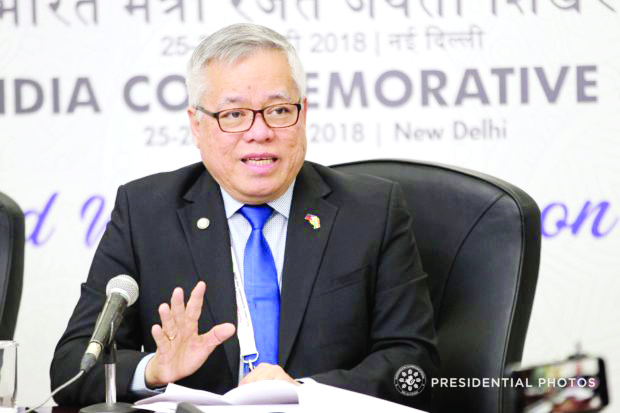
Trade Secretary urged the government to make more reforms while the trade war between the United States (US) and China is underway.
Secretary Ramon Lopez underscored that the Cabinet decided to adopt recommendations from the Department of Trade and Industry (DTI) and the National Economic Development Authority (NEDA) during a joint presentation at the Cabinet meeting last Sept. 4.
“The Philippines is not as vulnerable as other countries, as exports only account for 15 percent of our GDP (Gross Domestic Product). But a prolonged trade war will eventually affect our export growth,” said Lopez.
Lopez added that the trade war is “an opportunity for the Philippines to attract more export-oriented manufacturing foreign direct investments. However, it is necessary to address key constraints in attracting investors to the country.”
Projects approved by the Board of Investments from the US and China grow at different rates. US investments in the country rose by 7.3 percent from P583 million in 2017 to P625 million in 2018. On the other hand, Chinese investments grew by 8,364 percent from P576 million in 2017 to P48.74 billion in 2018.
To achieve this goal, DTI and NEDA proposed recommendations, ranging from short-term to long-term strategies, said the Secretary.
DTI is already implementing some of the short-term strategies mentioned, like eliminating investors’ uncertainties by supporting the passage of the Corporate Income Tax and Incentives Rationalization (CITIRA) Act, and to further ease the market through the amendment of Foreign Investment Act, Public Service Act and Retail Trade Liberalization Act.
On improving ease of doing business, Lopez said that the government should hasten the establishment of Central Business Portal and to commit full operation of TradeNet, the government’s online platform for trade permits.
Along with these are other proposals for national security and peace and order with due consideration to China’s rising investments in the country and to help local workers who will be at risk of displacement because of the trade war.
Finally, Lopez said that DTI will continue its trade strategy, which aims to integrate unify regional value chain productions network. The agency maintains this through the Regional Comprehensive Economic Partnership in the country while in pursuit of trade agreements with other countries outside the Asia-Pacific region.
For long-term strategies, the Secretary related the collaboration of different government agencies in order to improve the country’s business climate. By building ports, airports and guaranteeing affordable and reliable energy throughout the country, investors will be encouraged to locate in emerging hubs outside Metro Manila.
DTI and NEDA suggested equipping students and workers with the skills needed for the “Fourth Industrial Revolution.” The government should also lead to promote innovation by building regional inclusive innovation centers (RIICs) in major cities and provinces. These RIICs will serve as hubs for startups and partnership projects among the industry, government and academe.
The local micro, small and medium enterprises will be linked with global businesses. DTI will partner with other concerned agencies to strengthen national quality foundation for standards setting, testing and accreditation, and metrology to create more competitive products and industries.
Lopez said that these initiatives will not only shield the Philippines from the worst effects of the US-China trade war but will also improve the country’s attractiveness to foreign investors in other countries. (With a report from DTI/PN)







